
Mr. Srinivasan emphasized that despite facing many challenges such as trade instability, risks related to public debt and other factors, the Asian region still has many positive opportunities. According to him, Asia can completely shift more strongly to growth based on domestic demand.
He also highlighted the clear benefits of increased regional integration, with Asia’s GDP potentially rising by up to 1.4% over the medium term. Countries with higher economic openness and deeper integration into global supply chains would see more tangible benefits.
According to the latest forecast of the IMF, economic growth in the Asia- Pacific region will slow slightly, from 4.5% this year to 4.1% in 2026. Despite the slowing growth rate, the region is still expected to be the locomotive of the global economy, contributing about 60% of total global growth in both years.
Mr. Srinivasan attributed this resilience to strong exports, a boom in the technology sector, and flexible macroeconomic policies.
IMF raises global growth forecast to 3.2%
The IMF has just released its latest World Economic Outlook (WEO) report, in which it revised up the global growth outlook compared to the level given in the April WEO version but still lower than forecasts before the policy change.
The global economy is adapting to a new landscape reshaped by new policy measures, the IMF said. Some previously high tariffs have been reduced through subsequent agreements and adjustments. However, the overall environment remains volatile, and temporary factors that supported economic activity in the first half of 2025, such as the strategy of boosting imports before tariffs took effect, are gradually losing their effect. As a result, the IMF forecasts global growth to reach about 3.2% this year, down from 3.3% last year but higher than the 3.1% forecast for next year. Previously, the IMF forecast the world economy to grow by only 3% this year.
Also according to the latest version of WEO, developed economies are likely to achieve a growth rate of 1.5%, while emerging and developing economies will achieve a growth rate of over 4%.
On inflation, the IMF said global inflation is expected to continue to decline, although there are differences between countries. While inflation is trending higher in the US, it is expected to decline elsewhere. The IMF forecasts global inflation to remain high at 4.2% this year and 3.7% next year.
In terms of national growth, the IMF raised its US economic growth forecast by 0.1 percentage point for this year and next, to 2% and 2.1%, respectively. However, this is still significantly lower than the 2.8% growth recorded in 2024.
As for China, the IMF forecasts growth in the world’s second-largest economy will slow from 5% in 2024 to 4.8% this year and 4.2% next year, in line with previous estimates. The IMF said China’s slowdown was mainly due to a decline in net exports, although this was partly offset by rising domestic demand due to policy stimulus measures.
In addition, the IMF also raised its growth forecast for India to 6.6% and Japan to 1.1% in 2025. For the European economy, the Eurozone is forecast to grow 1.2% this year and 1.1% in 2026. Although this figure is slightly up from last year, it is still much lower than the growth rate of the US and many other major economies, showing the persistent challenges that many European economies are facing.
The IMF calls on policymakers to restore confidence through credible, transparent and sustainable policies. Trade should be combined with macroeconomic adjustment. Fiscal buffers should be rebuilt and central bank independence should be protected, along with further structural reform efforts.
Updated October 17, 2025
Source: https://laichau.gov.vn/tin-tuc-su-kien/chuyen-de/tin-trong-nuoc/imf-chau-a-can-tang-suc-cau-noi-dia-va-day-manh-hoi-nhap-khu-vuc.html



![[Photo] Closing ceremony of the 18th Congress of Hanoi Party Committee](https://vphoto.vietnam.vn/thumb/1200x675/vietnam/resource/IMAGE/2025/10/17/1760704850107_ndo_br_1-jpg.webp)




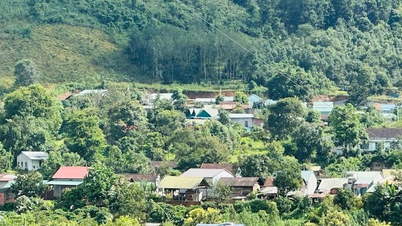





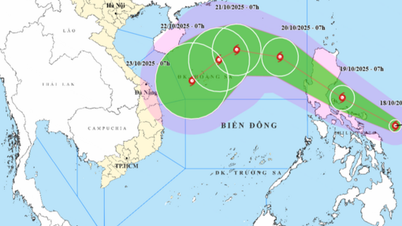
















![[Photo] Nhan Dan Newspaper launches “Fatherland in the Heart: The Concert Film”](https://vphoto.vietnam.vn/thumb/1200x675/vietnam/resource/IMAGE/2025/10/16/1760622132545_thiet-ke-chua-co-ten-36-png.webp)

































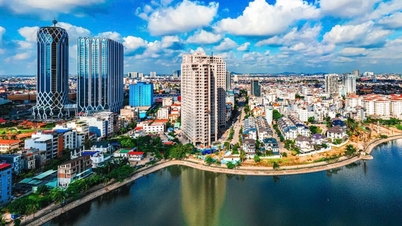
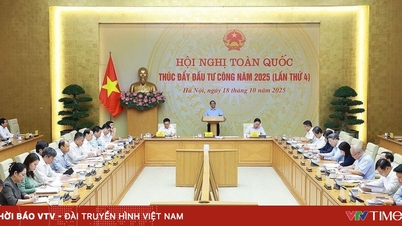


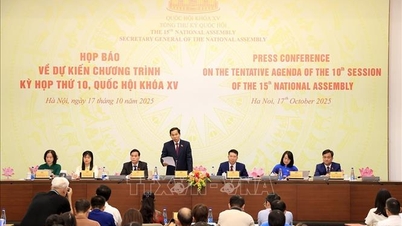





























Comment (0)